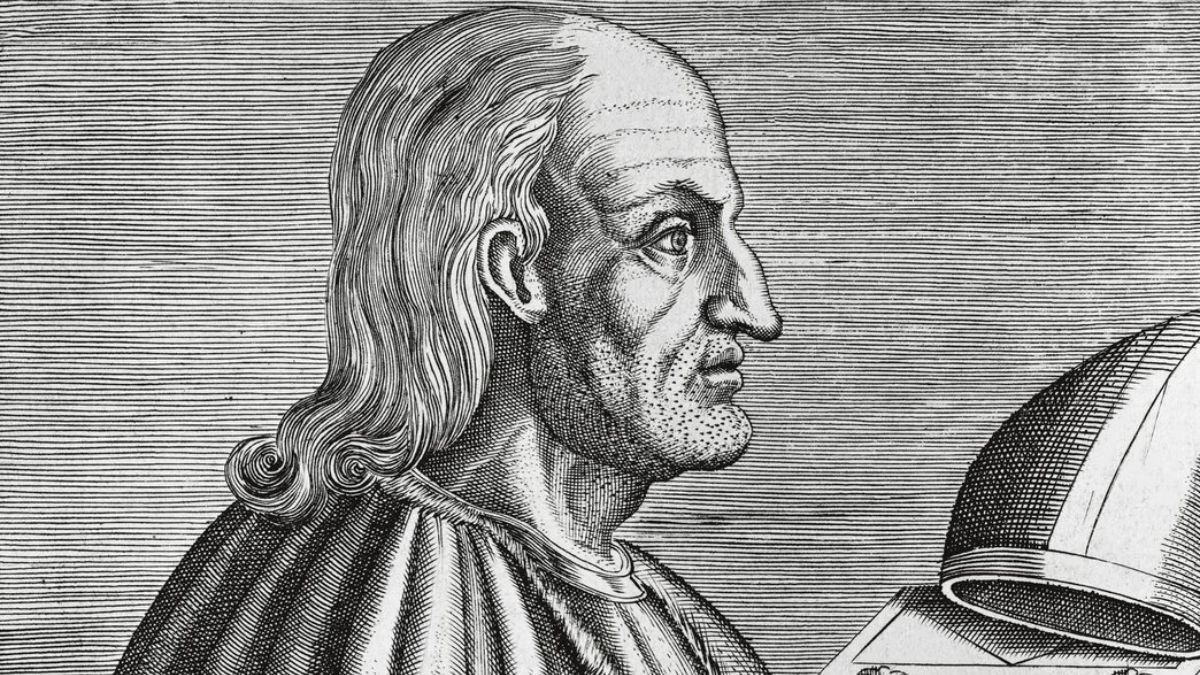

Anselm, the Ontological Argument, Faith and Reason
The opposing theories that point to the existence of God.
04/29/24
John Stonestreet Jared Hayden

This month marks the 915th anniversary of the death of Anselm of Canterbury, one of the most influential theologians and apologists of his millennium. As a theologian, Anselm is known for advancing the satisfaction theory of atonement, a precursor to the ideas about sin and salvation that would be later championed by the Protestant reformers. As an apologist, Anselm argued that faith and reason do not stand opposed but, rather, work together in the pursuit of truth. Reason is not an obstacle to faith, and faith is not an obstacle to reason. Knowledge is, he believed, “faith seeking understanding.”
Anselm is perhaps best known for the “ontological argument” for the existence of God. Published in his 1078 work the Proslogion, Anselm set out to construct “a single argument which would require no other for its proof.” The argument can seem confusing, but at its heart, it’s simple: God, by definition, is the greatest possible being that humans can imagine, greater than which nothing else can be imagined. However, if God were only an idea in our minds, He would not be the greatest possible being imaginable because the greatest possible being would also exist in reality (and not just in our minds). Therefore, God exists.
Since its publication, Anselm’s ontological argument has been the subject of much debate. After all, humans imagine all kinds of things. Must they exist also?
No. Anselm’s key insight is that God is a necessary being. In other words, God does not depend on any other being for His existence. God exists independently of anything or anyone else, regardless of whether we believe in Him.
Two centuries after Anselm, Thomas Aquinas argued that God’s existence is necessary for other things to exist. To use an analogy: God is necessary for the existence of all creation like the sun is necessary to sustain all life. Plants depend on sunlight to create the nutrients they need. Many animals depend on plants for their survival. Other animals depend on plant-eating animals for their survival. Therefore, if the sun did not exist, neither would any life on Earth. Because life exists, that suggests the sun must also exist.
Like the sun, God is necessary for both the existence and continued existence of life. As twentieth century theologian Robert Capon put it, creation is not some
self-perpetuating pool game which is contingent only at the start—which needs only the first push on the cue ball to keep it going forever. … The world is more unnecessary than that. It is unnecessary now; it cries in this moment for a cause to hold it in being. … [I]f God wanted to get rid of the universe, He would not have to do anything; He would have to stop doing something.
An insight that is also central for Anselm is the relationship of the mind to reality. For Anselm, the human ability to conceive of a being that is greater than any other being points to an actual reality of that being. C.S. Lewis applied similar logic in Mere Christianity when he wrote, “If I find in myself a desire which no experience in this world can satisfy, the most probable explanation is that I was made for another world.”
And even more clearly here:
If the whole universe has no meaning, we should never have found out that it has no meaning: just as, if there were no light in the universe and therefore no creatures with eyes, we should never know it was dark. Dark would be without meaning.
Anselm believed that the fact that humans are the kind of creatures that even raise the question of deity suggests there is something about us and the world that makes the idea of God reasonable in the first place. The fact that we do live in that kind of a world and are that kind of creature must be explained. And, he believed, thinking that faith and reason are opposed to one another won’t help us. Rather, as Anselm taught, faith and reason go hand-in-hand.
This Breakpoint was co-authored by Jared Hayden. For more resources to live like a Christian in this cultural moment, go to breakpoint.org.
Have a Follow-up Question?
Up
Next

Related Content

© Copyright 2020, All Rights Reserved.













